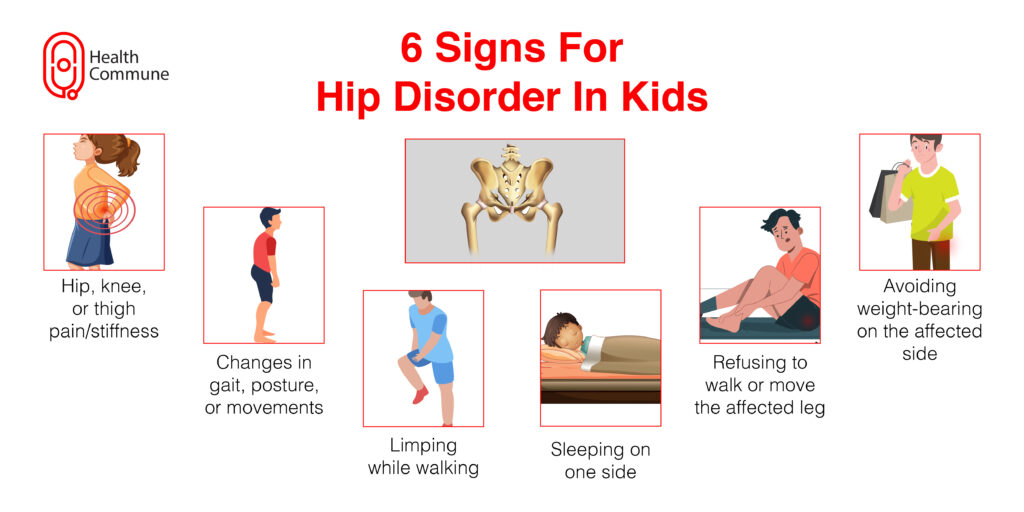Hip replacement surgery can significantly improve pain and the quality of your life. Read on to learn about what it is, what happens before, during, and after the surgery, and whether you’re eligible to undergo the procedure.
What is a hip replacement?
Who requires hip replacement surgery?
Your doctor will recommend this surgery to you if you have hip pain that has severely impacted your day-to-day activities and quality of life. It is usually advised if you’re suffering from :
- Osteoarthritis: Osteoarthritis is the most common joint disease in India, affecting up to 39% of the population
Rheumatoid arthritis - Post-traumatic arthritis
Osteonecrosis, or avascular necrosis of the femoral head, is a condition where the bone tissue dies due to a lack of blood supply - Femoroacetabular or hip impingement: This is a condition where there is abnormal contact between the two bones that make up the hip joint (the acetabulum of the hip bone and the head of the femur)
- Trauma
- Tumours
- Childhood hip disorders
A 2020 study found that avascular necrosis of the femoral head accounted for almost half of the hip replacement surgeries in India, followed by osteoarthritis.
When do children need hip replacement surgery?
Hip replacement is not just for the elderly. Children can suffer from hip disorders such as :
- Congenital dislocation of the hip (also called developmental hip dysplasia): This is a condition where there is spontaneous dislocation of the hip in babies that can occur before, during, or shortly after birth.
- Legg-Calvé-Perthes disease: It is a type of avascular necrosis in children where the blood supply to the head of the femur gets interrupted, resulting in death of the bone tissue
- Slipped capital femoral epiphysis: This usually occurs in teens and pre-teens, where the head of the femur slips out of its socket and goes backwards
Tumours of the hip joint
Who is not eligible for hip replacement surgery?
You may not be a suitable candidate if :
- There is an infection in your hip joint
- You have severe osteoporosis
- You smoke or regularly use tobacco
- You cannot follow pre- and post-surgical instructions properly
- You’re severely overweight
- Your muscles around the joint are weak

What are the symptoms of hip disorders in children?
If your child has a hip disorder, they can have the following symptoms :
- Pain or stiffness in the hips, knees, or thighs
- Limping while walking
- Altered manner of walking, sitting, and climbing the stairs
- Favouring a particular side while sleeping
- Refusing to walk or move the affected leg
- Refusing to bear weight on the affected side
What’s the difference between partial and total hip replacement?
Is it possible to replace both hips at the same time?
Usually, your doctor will not recommend replacing both hips at the same time due to issues with positioning. Instead, a gap of 4-5 days is given between the two surgeries in the case of bilateral surgery.
What happens before hip replacement surgery?
During the consultation, the surgeon will thoroughly explain the procedure, its outcome, and any potential complications. They will also respond to any queries or worries you might have.
- You’ll sign a consent form permitting to do the procedure
- Your doctor will ask you for your medical and surgical history, including any bleeding disorders, allergies, or sensitivities, along with any family history of illnesses
- A comprehensive history of your medications will also be taken, including blood thinners, over-the-counter and prescription medicines, vitamins, herbal supplements, ayurvedic and homoeopathic medicines
- You’ll undergo a general physical examination where your vital signs like pulse rate, blood pressure, oxygen saturation, and respiratory rate will be measured. You’ll also be required to undergo a blood test to know your blood parameters before surgery and ensure everything is normal
- Your doctor will give you specific instructions regarding anything else that needs to be done before the procedure
You’ll change into a hospital gown and wait in the pre-operative area before your surgery
What happens during hip replacement surgery?
- Your surgery usually takes place under general anaesthesia, and your vital signs are monitored by your anaesthetist
- Your orthopaedic surgeon will slice off all the damaged areas, prepare your bones to take the prosthesis and ensure that they optimally align
- They’ll then close the incision and suture or staple it
- They’ll dress the wound, and you’ll be shifted to the post-op ward
What happens after hip replacement surgery?
The duration of your post-op stay depends on whether you get one or both hips replaced.
- Your vital signs will be checked in the recovery area following the treatment
- Your surgical team will start ankle/foot pump exercises within 6-8 hours of your surgery to minimise the chances of blood clots and also give you a sense of control
- You’ll be started on exercises and physiotherapy the following day and be made to walk with the help of a walker
What are the complications of hip replacement surgery?
Like any other surgery, this procedure comes with certain risks and complications that include :
- Formation of blood clots, which can lead to pulmonary embolism, stroke, or heart attack
- Infections
- Persistent pain and stiffness of the joint
- Damage to the blood vessels, nerves, and tendons around the knee joint
- Fracture
- Dislocation of the implant
- Formation of new bone around the implant, causing stiffness and decreased range of motion
How long do I need to stay in the hospital post-surgery?
For unilateral surgery, you’ll be asked to stay in the hospital for around 5-7 days. If you’ve undergone surgery on both hips, you’ll be discharged after a period of 9-10 days.
How long does an implant typically last?
A hip implant typically lasts anywhere between 15-20 years.




